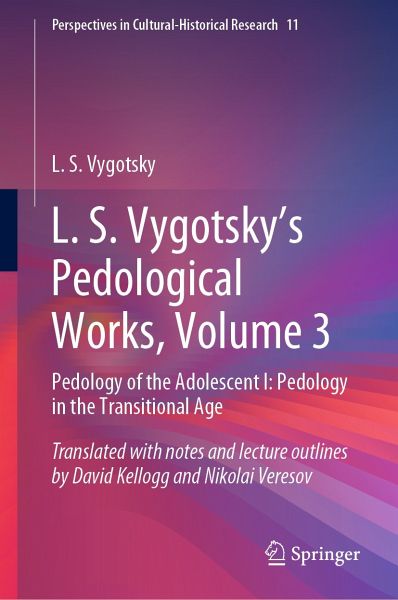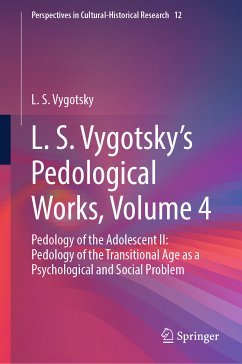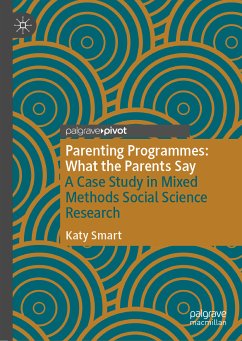
L. S. Vygotsky's Pedological Works, Volume 3 (eBook, PDF)
Pedology of the Adolescent I: Pedology in the Transitional Age
Übersetzer: Kellogg, David; Veresov, Nikolai
Versandkostenfrei!
Sofort per Download lieferbar
80,95 €
inkl. MwSt.
Weitere Ausgaben:

PAYBACK Punkte
40 °P sammeln!
This book contains the first complete translation of the first half of the Pedology of the Adolescent by the Soviet thinker, educator, and teacher L.S. Vygotsky. It was the longest work published in his lifetime and was a correspondence course written by Vygotsky for teachers across the Soviet Union. The book is a sustained argument about the borders of pedology, the nature of the transition between childhood and adulthood, and the concrete character of the distinction between the lower psychological functions that we largely share with animals and those that are specific to fully socialized h...
This book contains the first complete translation of the first half of the Pedology of the Adolescent by the Soviet thinker, educator, and teacher L.S. Vygotsky. It was the longest work published in his lifetime and was a correspondence course written by Vygotsky for teachers across the Soviet Union. The book is a sustained argument about the borders of pedology, the nature of the transition between childhood and adulthood, and the concrete character of the distinction between the lower psychological functions that we largely share with animals and those that are specific to fully socialized humans. After an initial methodological introduction, three kinds of maturation-general anatomical, sexual, and sociocultural-are explored.
This book will be followed by a companion volume covering pedology of the transitional age as a psychological and social problem.
This book will be followed by a companion volume covering pedology of the transitional age as a psychological and social problem.
Dieser Download kann aus rechtlichen Gründen nur mit Rechnungsadresse in A, B, BG, CY, CZ, D, DK, EW, E, FIN, F, GR, HR, H, IRL, I, LT, L, LR, M, NL, PL, P, R, S, SLO, SK ausgeliefert werden.












